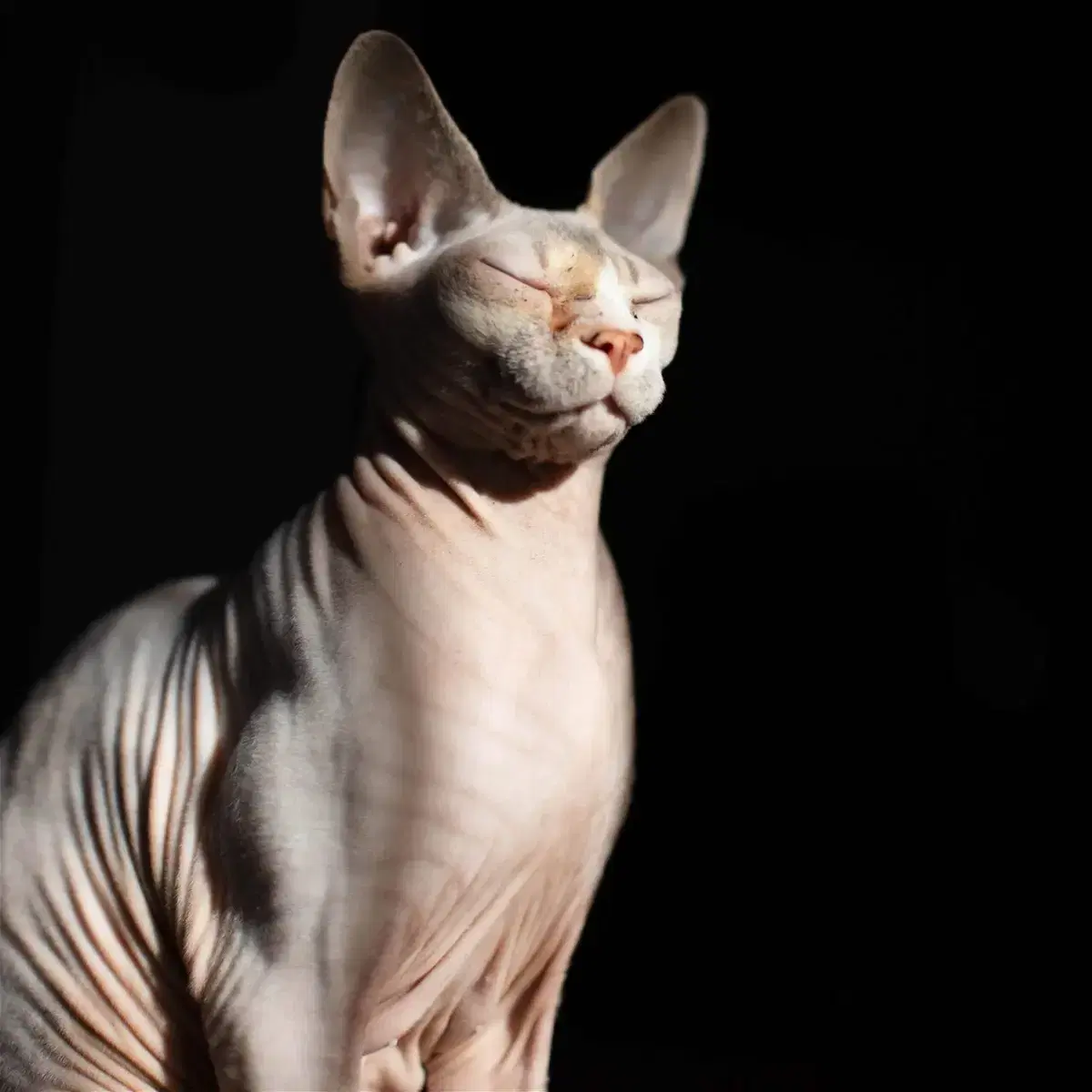Sphynx cats, with their captivating wrinkles and irresistible snuggles, are a unique breed that requires special care. While generally healthy, they are prone to certain health conditions. Early detection and intervention are crucial for maintaining your Sphynx's well-being. Let's explore six top health concerns for Sphynx cats and how to spot the signs.
1. Skin Problems in Sphynx Cats
Unlike furry felines, Sphynx cats lack fur, leaving their skin exposed. This can lead to issues like:
Urticaria pigmentosa: This genetic condition causes red, itchy bumps on the skin. A veterinarian can perform a genetic test for diagnosis.
Seborrhea: Excess oil production creates greasy, itchy patches on the skin.
Prevention and Care:
Maintain a high-quality diet specifically formulated for Sphynx cats to minimize oil production.
Regular baths with gentle shampoos designed for sensitive skin help remove excess oil and dirt.
Consult your veterinarian for a skincare routine and to discuss treatment options for diagnosed conditions.
2. Keeping Your Sphynx Cat Warm
Without fur, Sphynx cats struggle to regulate their body temperature.
Signs:
Coldness: Feeling their body, especially paws and ears, or observing shivering and lethargy can indicate your cat is cold.
Dislike for cold surfaces: When cold, your Sphynx might avoid tile floors or seek warmth near radiators or on your lap.
Prevention:
Provide cozy cat beds, climbing structures with plush perches, and even sweaters for added warmth, especially in colder climates.
Cat-safe heating pads can offer additional comfort on chilly days.
3. Dental Care for Sphynx Cats
Sphynx cats are susceptible to dental problems like periodontal disease.
Signs: Bad breath, discolored teeth, and red, swollen gums are all potential indicators.
Prevention and Care:
Regular veterinary dental cleanings are crucial.
Brushing your Sphynx cat's teeth daily with a soft brush and cat-specific toothpaste promotes good oral hygiene.
4. Ear Infections
Sphynx cats' large, exposed ears can trap moisture and debris, increasing the risk of ear infections.
Signs: Head tilting, scratching at the ears, redness, or discharge are all potential signs of an ear infection.
Prevention and Care:
Gently clean your Sphynx cat's ears using a vet-recommended solution to prevent a buildup of wax and debris.
Avoid using cotton swabs, which can damage the eardrum.
5. Hypertrophic Cardiomyopathy (HCM)
Hypertrophic Cardiomyopathy is a thickening of the heart muscle, a common concern in Sphynx cats. Early detection is vital.
Signs (may not be present in all cases): Difficulty breathing, lethargy, or sudden paralysis in the hind legs can be signs of HCM in advanced stages.
Prevention and Care: Regular veterinary checkups with screening for HCM are essential. Early diagnosis allows veterinarians to develop a treatment plan to manage the condition.
6. Hereditary Myopathy
This genetic condition affects muscle function and can cause weakness.
Signs: Difficulty raising the head, abnormal head-bobbing, or an unusual gait are potential indicators.
Prevention and Care:
Genetic testing of Sphynx kittens can help identify carriers of this condition. Responsible breeders should screen their cats before breeding them.
There is currently no cure for Hereditary Myopathy, but supportive care can improve a cat's quality of life.
Expert Insights From Spot
Sphynx cats, with their hairless charm, can also be prone to certain health conditions. Here at Spot, we analyzed our claims data to see what health issues come up most often for Sphynx cats:
Ear Infections: This is the most common concern for Sphynx cat owners, with Spot receiving over 29,828 claims for ear infections. The average treatment cost for ear infections is $324.10, and they typically occur in younger Sphynx cats, around 3 years old.
Dental Disease: Sphynx cats, like many other breeds, can be susceptible to periodontal disease. Spot has received over 8,202 claims for dental issues, with an average treatment cost of $1056.64. Periodontal disease typically presents itself in middle-aged cats, around 7 years old.
Hypertrophic Cardiomyopathy (HCM): This is a more serious condition affecting the heart muscle. While less frequent than other issues, HCM is important to be aware of. Spot has received 242 claims for HCM, with an average treatment cost of $852.55. HCM typically affects cats around 7 years old.
It's important to note: This data represents averages and shouldn't replace regular veterinary checkups. Schedule regular wellness exams with your veterinarian to monitor your Sphynx cat's health and catch any potential problems early.
Lifespan of a Sphynx Cat
With proper care and veterinary attention, Sphynx cats can enjoy a lifespan of 15 to 20 years.
Key Takeaways
Sphynx cats are captivating companions, but understanding their unique needs is essential. By being aware of potential health concerns, providing a loving and enriching environment, and maintaining regular veterinary care, you can help your Sphynx cat live a long, healthy, and happy life.
Cat Insurance For Sphynx Cats
Your sphynx cat has a special role in your family. For help cover the cost of your pet's care, consider cat insurance today!

The resident animal enthusiast at Spot. I have a lifetime of pet parent experience. If it has fur, feathers, or scales, I’ve probably shared my home with it. I aim to be a reliable source, blending experience with a dedication to the well-being of pets.












